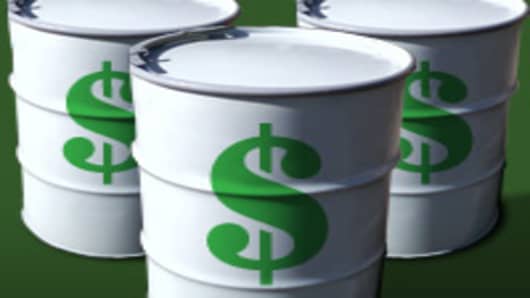Sure, some analysts are skeptical about the relationship between oil and the dollar.
The conventional wisdom, though, is that the weaker dollar has encouraged investors to buy dollar-denominated commodities to hedge inflation and has contributed in some part to rising oil prices.
But this morning it was pretty clear that the exact opposite was taking place as the dollar advanced and the euro tanked during Fed Chairman Ben Bernanke's testimony.Talking about the inflationary impact of the weaker dollar helped spur the greenback's gains andoil prices plummeted over $2/barrel.
Demand Dilemma
But there's more pressuring crude than the stronger dollar. Falling demand is a major concern, not only in the U.S. but globally. Malaysia is set to join other Southeast Asian nations in cutting fuel subsidies, and India is about to raise fuel prices.
Closer to home, GM is closing four of its North American plants that make pickup trucks and SUVs and reviewing its HUMMER line. Who wants a big truck if it costs over $100 to fill up the gas tank? And, the Energy Department says retail gasoline prices could reach $4.10/gallon this summer. We have to ask ourselves: What will that do to U.S. consumer demand?
Blame It On the Robots?
In case you missed it, the Energy Information Administration admitted it messed up by allowing last Thursday's oil inventory data to come out a few moments early. The government put the blame on a system "malfunction" and appears some investors rigged sticky-fingered "robots" that were somehow able to grab the info ahead of time.
The EIA is working on improving its system and cracking down on those "robots." While it gets its act together, the EIA will delay the release of its weekly petroleum and natural gas reports to 10:35 a.m. ET on Wednesdays and Thursdays. I'll still be standing by at 10:25 a.m. ...just in case.
Questions? Comments? energysource@cnbc.com



